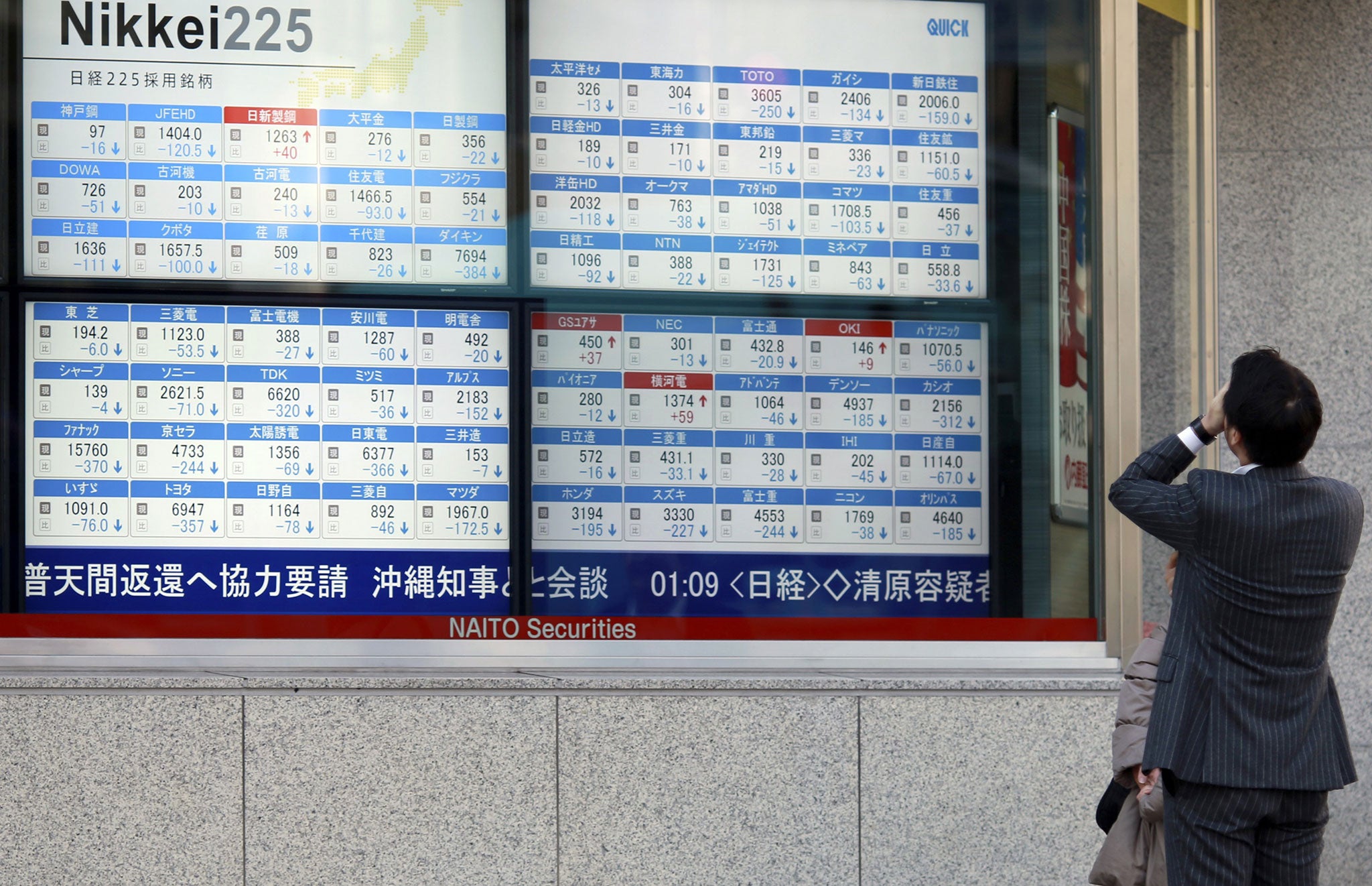FTSE 100 hits 3-year low amid heightened fears of new global recession
Falling oil prices, fears over slowing economic growth and uncertainty over the US Federal Reserve's decision to raise interest rates have weighed on international stock markets

The FTSE 100 lost early gains on Tuesday to hit a three-year low in intraday trading.
Shares dropped 1.3 per cent to hit 5,613 points, slumping below the previous three-year low that was set in January when the UK fell into a bear market.
Mining shares were the biggest loses. Antofagasta, a copper producer, and Anglo American, which produces iron ore, nickel and coal, both fell by more than 9 per cent.
Connor Campbell, financials analyst at Spreadex, said that the FTSE was facing a triple whammy of pressures from falling Chinese demand in commodities, the news that the UK hit an all-time high trade gap of £125 billion, and a disastrous trading session in Japan.
"The only thing on the UK index’s side at the moment is Brent Crude, which has risen around 1.5% to touch $33.50 per barrel, though the black stuff’s latest minor recovery has frustratingly had little effect on the UK oil stocks," Campbell said.
In Europe Deutsche Bank credit default swaps, which measure how likely investors think it is that a bank will go bust, sky-rocketed, despite reassurances from the bank's CEO.
John Cryan wrote a letter to employees say that Deutsche was "rock solid".
But he could not stop shares in the bank hitting lows set in 2009 after the collapse of Lehman Brothers.
Asian markets sunk on Tuesday after European bank stocks sent investors running to so-called safe haven assets. Japanese stocks dropped 5.4 per cent, the Nikkei's worst one-day drop since June 2013.
Investors choose instead to park their money in gold, which surged to its highest value since June, and other assets that are expected to maintain their value in times of uncertainty.
Japanese government bond yields also slumped, turning negative for the first time, meaning that investors were effectively paying to lend money to the government.
Ten-year bond prices have climbed since the Bank of Japan's shock decision to adopt negative interest rates on January 29.
Markets in China, Hong Kong, Taiwan and South Korea were closed for the Chinese New Year holidays, with most returning to business on Wednesday.
Easing monetary policy should weaken a currency, but the move has had the opposite effect in Japan, pushing the value of the yen higher against the dollar.
The yen surged to its highest against the dollar in 15 months, prompting Japanese Finance Minister Taro Aso to warn that its rise was unstable.
“It is clear that recent moves in the market have been rough. We will continue to carefully monitor developments in the currency market," Aso said.
Kaneo Ogino, director at foreign exchange research firm Global-info Co in Tokyo, described it as a “panic situation”.
Falling oil prices, fears over slowing economic growth and uncertainty over the US Federal Reserve's decision to raise interest rates have weighed on international stock markets since January. Those worries show no signs of abating in February.
Business news: In pictures
Show all 13“The combination of concerns that the United States could be heading toward a recession and the global stock sell-off is curbing risk appetite and is sending investors to the safe-haven yen,” Takuya Takahashi, senior strategist at Daiwa Securities, told Kyodo News.
Subscribe to Independent Premium to bookmark this article
Want to bookmark your favourite articles and stories to read or reference later? Start your Independent Premium subscription today.

Join our commenting forum
Join thought-provoking conversations, follow other Independent readers and see their replies